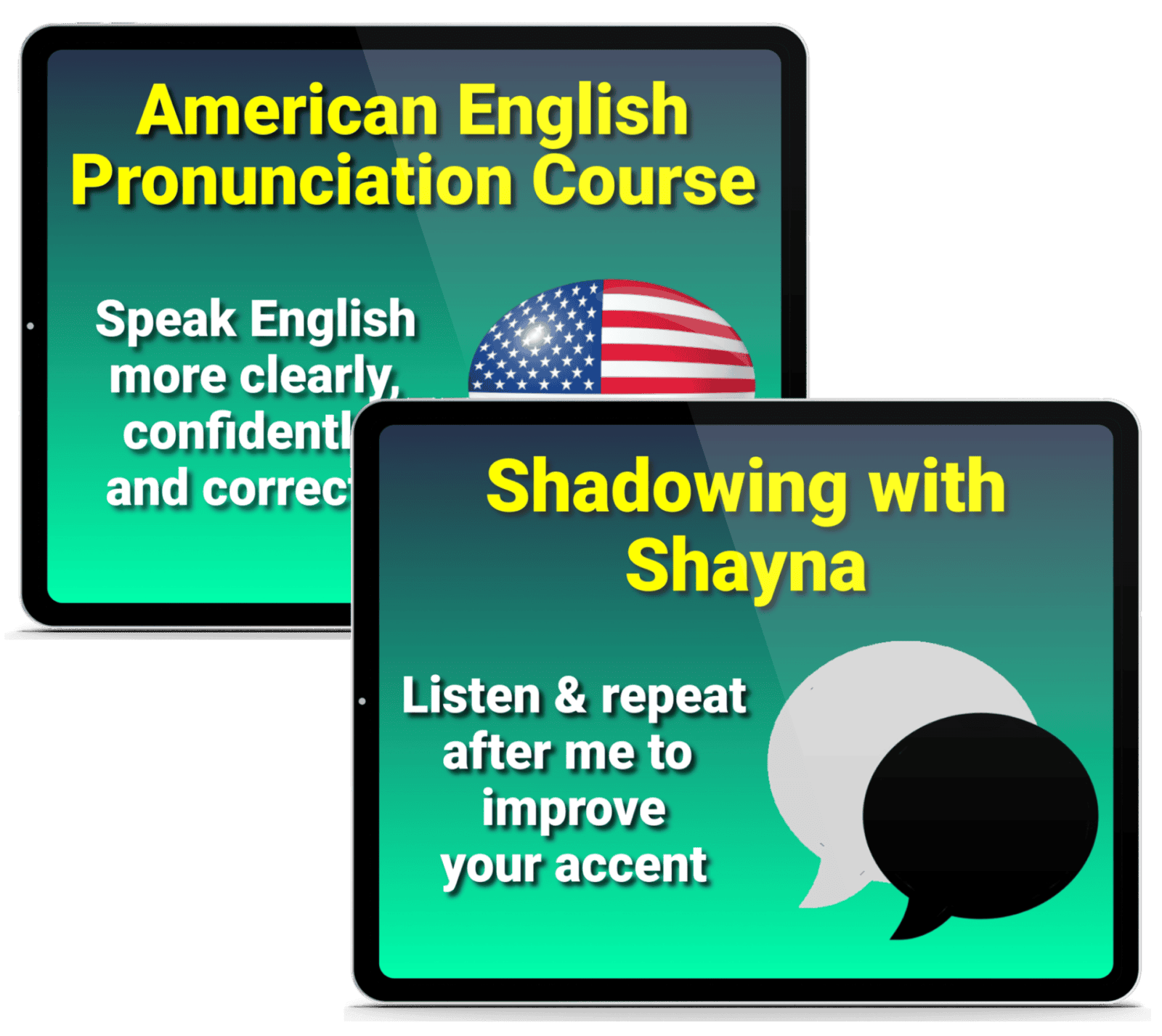
Today I want to help you fix a pronunciation problem that I hear in a LOT of students’ English, and that is saying things like this:
- I ask-ed him to help me.
- We pre-par-ed for our trip.
The mistake is with the verbs in the past, ending in -ED. The correct way to say them is:
- askt (not ask-ed)
- pre-pard (not pre-par-ed)
It’s a small mistake, but unfortunately it makes it obvious that someone’s not a native English speaker.
So today I’ll explain some simple rules to help you pronounce the -ED ending correctly every time, and we’ll practice together.
If you want to improve your pronunciation fast in the next 30 days, then I’d like to invite you into my American English Pronunciation Course.
We’ll go through every sound in the English language and help you speak more clearly, so that you can be confident that other people will understand you!
-ED pronounced like “id”
Let’s get started. The only time we pronounce the -ED ending like “id” with an extra syllable is after verbs ending in a T or D sound.
So want (one syllable) becomes want-ed (two syllables), and de-cide (two syllables) becomes de-cid-ed (three syllables). Listen and repeat after me.
- started
- ended
- hated
- guarded
- attempted
- exploded
- acted
- provided
-ED pronounced like “t”
After verbs ending in S, X, K, P, F, SH, and CH sounds, the -ED ending should sound like “T” with no extra syllable.
So ask (one syllable) becomes asked (also one syllable). Dis-miss (two syllables) becomes dis-missed (also two syllables). Notice how the -ED just sounds like T. Let’s practice:
- worked
- missed
- fixed
- liked
- stopped
- noticed
- laughed
- brushed
- watched
- developed
-ED pronounced like “d”
For all other regular verbs that end in any other sound besides the ones we’ve already mentioned, the -ED ending sounds like “D” but with NO extra syllable.
So call (one syllable) becomes called (also one syllable) – not call-ed.
Pre-pare (two syllables) becomes pre-pared (also two syllables) – not pre-par-ed with three.
Let’s try some examples:
- cleaned
- played
- used
- allowed
- pulled
- argued
- compared
- annoyed
- analyzed
- opened
With some words it’s a little difficult, like judge becomes judged, but we try to go directly from G to D, and not say judg-ed.
Quick review:
- For regular verbs ending in T or D sounds, we pronounce the -ED ending like “id”:
want – want-ed - For regular verbs ending in S, X, K, P, F, SH, and CH sounds, we pronounce the -ED ending like “T”:
kiss – kissed (kisst) - For all other regular verbs, we pronounce the -ED ending like “D” and just stick it onto the final sound without adding an extra syllable:
clean – cleaned (like cleand, not clean-ed)
If you enjoyed this lesson, I think you’ll really like my American English Pronunciation Course, where we go into detail about these important pronunciation tips, and there’s lots and lots of listen-and-repeat practice. I hope to see you inside!
More pronunciation practice:








